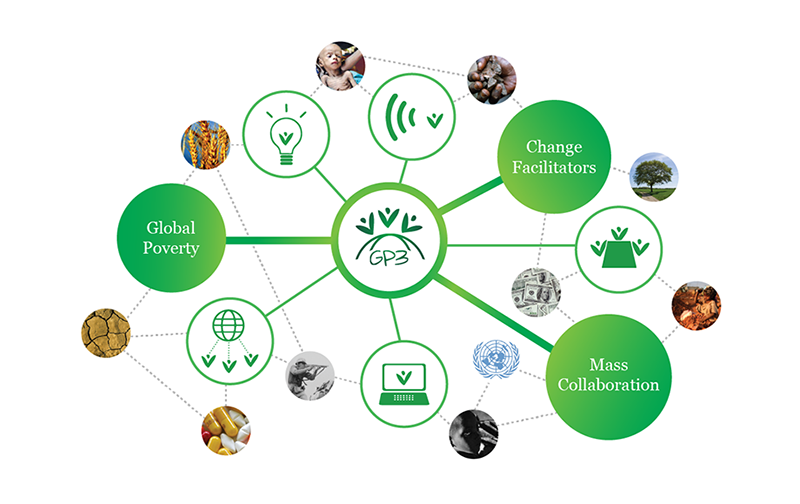In December 2009, GP3 Korea was founded upon the belief that more and easier access to knowledge will gather more public attention, with the efforts of students registered for the course and volunteers. When the course ‘Globalization, Poverty, Development and Law’ was opened at the Graduate School of International Studies, Korea University, the lecturer of the course, Eun Chang Choi, decided to put his idea into practice. The idea was to commonly share public knowledge through innovative social media. The course covered issues affecting poverty, including public health, access to medicine, good governance, corruption, sustainable development policy, heavy debt, water and foreign aid. Sharing open knowledge of global poverty was a creative approach in fostering communities to understand the problem, share their visions, and take actions.
From our inception, we have sought to be a catalyst for positive changes in many communities, and our attempts have made great strides forward since then. GP3 Korea became a nation-wide online campaign that improves social awareness on poverty in Korea. While Choi was a law student, he was inspired by the Access to Knowledge Movement and the possibility of common-based peer production, which became the basis of our project. A key philosophy of the Access to Knowledge is to promote the dissemination of knowledge and information, without legal restrictions and liberated from the structural iniquities of knowledge markets.
We believe that expanding access to public knowledge is the foundation of building momentum for more effective giving and culture of engagement. We put emphases on ‘sharing open knowledge’ and ‘online collaborations.’ The low level of social engagement has been associated with the shortage of openly available knowledge about issues affecting extreme poverty. The most intractable problems in global poverty alleviation can be solved only through collaborative solutions. In this light, we continue to believe that our commitment combined with efforts of worldwide movements dedicated to ending poverty will bring a considerable change for a better future.










